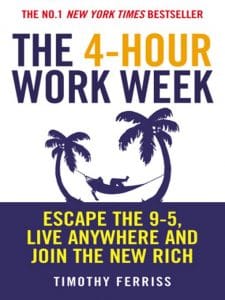What do you trade your time for? And how much do you pay to save yourself some time?
These questions help you to consider how much you value your time and can help you discover if your actions do not line up with your beliefs.
Valuing Your Time
We have already touched on the opportunity cost of your time, and how time and money can be exchanged for one another. We will use these two concepts to help you get a feel for how much you really value your time (based on your actions), and you can see if they are congruent with your beliefs.
Trading Your Time for Money
- If you work, how much do you get paid per hour? Work out your Effective Rate — how much money you make per week divided by the number of hours you spent doing work-related things (mostly paid work, but also travel, responding to calls, and writing/reading work emails, etc).
- As a simple example, you might be paid $20 per hour of work but spend 30 minutes travelling each way to work and back. For a 3-hour shift, your effective rate is $15 per hour. For a 6-hour shift, your rate is $17.15 per hour.
- If you are self-employed, how much profit-before-tax have you made in the last week, month, quarter, or year? Now divide that by your average weekly hours (remember to include everything work-related), multiplied by the number of weeks in the period you are calculating.
- For example, let’s say your profits after all expenses, plus any wages you drew from the business, for the last quarter in your BAS (business activity statement) were $12,000. You have been working 55 hours a week and there are 13 weeks in a 3-month period. Your effective rate for that period was roughly $16.80 per hour.
- If you own businesses or other investments, add into your calculation the amount of income they provide in the period you are calculating, and include the hours you spend managing those investment (for example, making any decisions for the business, solving any business problems, analysing your current and prospective investments, and any buying or selling).
- For example, if you are the business owner in the above example plus you have an investment property that brings in $15,000 a year after all expenses, your income for the 3-month period would be $15,7501. Also, if you spend 20 hours managing this property a year, you add one quarter of that to your total business hours (7352). Your effective rate would then be about $21.40 per hour instead of $16.80. This is the beauty of passive income.
Trading Your Money for Time
What products and services do you pay for? How much time does it save you? We can use this to work out how much you value your time in two ways: (1) by looking at how much money you can save by doing a task yourself versus how much time it takes you; and (2) how much a particular product or service costs you in money and saves you in time.
We have already discussed how you might do this, so below are some calculation examples so that you can work them out for yourself:
- You use a tollway (as opposed to a freeway) that charges you $1 whenever you travel through a particular section on your way to work. You travel 20 minutes to work and taking this section cuts it to 15 minutes. Your $1 saves you 5 minutes, a time-saving rate of $12 per hour. If your time is worth $12 or more per hour, this is a good decision.
- You currently use a normal frying pan that cost your parents $30, it takes you 3 minutes to clean it after use, and you use it four nights a week. You are moving into your own house soon and are considering whether it is worth purchasing a $60 non-stick frying pan, because you know it only takes 30 seconds to clean them after use. The extra $30 will save you 10 minutes a week. If you use the pan for five years, that’s a time-saving rate of $0.703 per hour (so everyone should do this); if it only lasts three years, the rate is $1.154 per hour; and, one year’s rate is $3.455 per hour.
- Tip: work out the circumstances that would have to exist for you to not purchase the non-stick frying pan. Assume worst-case scenarios like the pan is only useful for one year. If your effective rate is $15 per hour, then we can work backwards to work how often you will need to expect to use the pan for the purchase to be worth it: once a month 6.
- Your house needs repainting. To do a respectable job, it would take you four weekends and $500 in materials. Assuming you spend 7.5 hours a day doing it, that’s $500 + 60 hours of your time. If your time is worth $20 an hour, you would be willing to pay up to $1,7007 for a professional to come in and do it for you.
Have you ever faced a decision similar to those above? What did you pay for? What did you not pay for? Each decision you make tells a story of how much you value your time.
If your decisions tell a story of an hourly rate lower than what you think your time is worth, your beliefs aren’t matching up with your actions. Reconsider the value of your time and make sure that your future decisions reflect that value.
Increasing Your Productivity
The concept of outsourcing was first brought to my attention by Tim Ferriss in his amazingly insightful book The 4-Hour Work Week.
If you haven’t read it yet, click one of the book links and order yourself a copy. If you put the insights in the book to use in your life, you’ll be saving hundreds of hours of your time. For one hour’s wage and a weekend of your time reading it, this is another one of those obvious purchases to make.
The major thing I got out of reading this book is that your goal should be to increase your rate of income, not your total income.
For example, let’s say that you have two options: (1) build your own business and, after a year or two, it will bring in $40,000 per year with only 10 hours a week of work; or (2) work your way up to a corporate position where you earn $200,000 per year from 80 hours a week.
Which option will make you “richer”? You might think option 2 does, because you make more money in absolute terms. I see this as a question of ‘which option values your time the highest?’: option 1 provides you with an hourly rate of about $80 per hour, and option 2’s rate is about $50 per hour.
In my post on financial and time-related excuses for not achieving what you want, I delve into how to be more productive, using tips from Tim Ferriss’ book.
- Elimination: the 80/20 principle says that 80% of an outcome usually comes from 20% of its sources. What brings you the most money, pleasure, happiness, or fulfilment? Of all the things you do, it’s probably only about 20% of those actions — cut out the other 80% and focus the rest of your time on the 20% of things that are most productive.
- Automation: of the remaining things that aren’t eliminated, what can you automate? Can you purchase a product or service, or build something yourself that can save you all or most of the time involved in that task?
- Delegation: whatever can’t be eliminated or automated, outsource. Above, you have worked out what you think your time is worth. If you can pay someone to do tasks for you at a rate less than what your time is worth, do so. Don’t be the person proud of spending all day working on their garden when the kid across the road could have done it for $50.
- Batching: of the tasks and activities left, what can you batch? Doing a 9-hour shift is more productive than doing three 3-hour shifts.
FightMediocrity is one of my favourite YouTube channels that does reviews on fantastic books like this. You can check out Malkhaz Geldiashvili’s video on The 4-Hour Work Week if you want the animated explanation.





